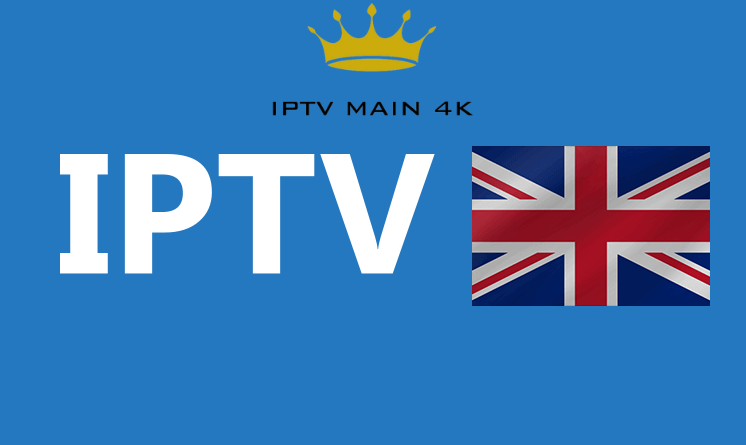The landscape of television consumption has significantly evolved over the past few years, largely due to the advent of IPTV (Internet Protocol Television). British IPTV services have become increasingly popular due to their ability to deliver a vast array of channels and on-demand content directly over the internet. However, with this rise in popularity, a critical question arises: Is British IPTV legal in the UK? This comprehensive article aims to explore the legality of British IPTV, addressing the nuances and implications for users and providers alike.
Understanding IPTV
IPTV stands for Internet Protocol Television. Unlike traditional terrestrial, satellite, or cable television, IPTV delivers television content through the internet. This method allows users to stream live TV, catch-up on previously aired programs, and access a library of on-demand content from various devices such as smart TVs, computers, and smartphones.
Types of IPTV Services
IPTV services generally fall into three categories:
- Live Television:
- This replicates the experience of traditional live TV, allowing users to watch broadcasts in real-time.
- Time-Shifted Media:
- Also known as catch-up TV, this allows viewers to watch previously aired programs at their convenience.
- Video on Demand (VOD):
- A service that provides a catalog of videos, including movies and TV shows, that users can access anytime.
Legal Framework of IPTV in the UK
The legality of IPTV services in the UK is determined by whether the service has the proper licenses to distribute the content it offers. Here’s a closer look at the legal aspects:
Licensed IPTV Services

Licensed IPTV services operate within the bounds of the law. These services have secured the necessary permissions and licenses from content creators and rights holders to distribute their programming. Examples of legal IPTV services include:
- BBC iPlayer:
- A catch-up service provided by the BBC, offering access to a wide range of BBC programs.
- Sky Go: A streaming service from Sky that provides live TV and on-demand content to its subscribers.
- Netflix and Amazon Prime Video:
- Popular VOD services that legally stream movies, TV shows, and exclusive content to their subscribers.
Licensed IPTV services pay royalties and licensing fees to content owners and adhere to broadcasting regulations, ensuring they operate legally.
Unlicensed IPTV Services
Unlicensed IPTV services, on the other hand, distribute content without securing the necessary permissions from rights holders. These services often provide access to a large number of live TV channels and on-demand content at a fraction of the cost of legal services. However, this practice constitutes copyright infringement and is illegal in the UK. Here are some key points to consider:
- Copyright Infringement: Streaming or downloading content without the appropriate licenses from rights holders is illegal. Copyright laws protect the intellectual property of content creators and distributors.
- Legal Consequences for Providers: Providers of unlicensed IPTV services are at risk of legal action. Authorities, including organizations like the Federation Against Copyright Theft (FACT) and the police, actively pursue and shut down illegal IPTV operations.
- Legal Consequences for Users: While enforcement efforts primarily target providers, users of illegal IPTV services can also face legal repercussions. This can include lawsuits, fines, or other penalties for accessing pirated content.
Risks of Using Illegal IPTV Services
Using unlicensed IPTV services involves several risks beyond the legal implications:
- Quality and Reliability Issues:
- Illegal IPTV services often suffer from poor streaming quality and reliability problems. Users may experience buffering, poor picture quality, and service interruptions.
- Security Risks:
- Many illegal IPTV services pose significant security risks. Users who download software from untrustworthy sources may expose themselves to malware, data theft, and other cyber threats.
- Financial Risks:
- Providing credit card information to unlicensed services can lead to financial loss or identity theft. These services might also engage in fraudulent activities.
Ensuring Your IPTV Service is Legal

To enjoy IPTV without the fear of legal repercussions, it is crucial to ensure that the service you use is licensed. Here are some guidelines to help you choose a legal IPTV service:
- Opt for Reputable Providers:
- Stick to well-known and established IPTV services. Companies like Netflix, Amazon Prime Video, and official broadcaster apps (such as BBC iPlayer and Sky Go) are reliable and legal.
- Verify Licensing: Before subscribing to any IPTV service, verify that it has the necessary licenses to broadcast the content it offers. Legitimate providers are transparent about their licensing agreements.
- Beware of Too-Good-to-Be-True Deals:
- If an IPTV service offers an extensive range of premium channels at a price that seems too good to be true, it probably is. These services are likely unlicensed and illegal.
- Check for Legal Indicators:
- Look for signs that an IPTV service is legitimate, such as clear refund policies, contact information, and a registered business address. Reviews and recommendations from trusted sources can also help verify the service’s legitimacy.
Understanding the Legal Environment
The legal landscape for IPTV in the UK is governed by copyright laws that protect the intellectual property rights of content creators and distributors. Here’s an overview of the legal environment affecting IPTV services:
The Digital Economy Act
The Digital Economy Act 2017 is a significant piece of legislation that impacts the use and distribution of IPTV services in the UK. The Act includes provisions to combat online piracy and protect intellectual property. Key measures include:
- Blocking Access to Infringing Websites:
- The Act allows courts to issue orders requiring internet service providers (ISPs) to block access to websites that provide illegal IPTV services.
- Penalties for Infringement:
- The Act increases penalties for online copyright infringement, including imprisonment and substantial fines for repeat offenders.
- ISP Responsibilities:
- ISPs are required to take reasonable steps to prevent access to pirated content and cooperate with rights holders to identify and block illegal IPTV services.
Enforcement and Prosecution
Enforcement of copyright laws related to IPTV is carried out by various agencies and organizations, including:
- Federation Against Copyright Theft (FACT):
- FACT is an organization dedicated to protecting intellectual property and combating piracy. It works with law enforcement agencies to identify and prosecute providers of illegal IPTV services.
- Police Intellectual Property Crime Unit (PIPCU):
- PIPCU is a specialized unit within the City of London Police that focuses on intellectual property crime. It targets large-scale operations providing illegal IPTV services and works to shut them down.
- Court Orders and Injunctions:
- Courts can issue orders to ISPs to block access to websites offering illegal IPTV services. Rights holders can also seek injunctions against individuals and organizations involved in piracy.
Consumer Awareness and Responsibility
Consumers play a crucial role in ensuring they use legal IPTV services. Here are some steps consumers can take to stay informed and responsible:
- Educate Yourself:
- Understand the difference between licensed and unlicensed IPTV services. Knowledge about copyright laws and the risks of using illegal services can help you make informed decisions.
- Research Services:
- Before subscribing to an IPTV service, conduct thorough research. Look for reviews, check the service’s licensing status, and ensure it has a good reputation.
- Report Illegal Services:
- If you come across an illegal IPTV service, report it to the relevant authorities. This helps protect intellectual property and supports the fight against piracy.
The Future of IPTV in the UK
The future of IPTV in the UK looks promising, with continued advancements in technology and increasing demand for on-demand and streaming services. Here are some trends and developments to watch for:
Growth of Legal IPTV Services
As more consumers seek convenient and flexible ways to access television content, the market for legal IPTV services is expected to grow. Established providers like Netflix, Amazon Prime Video, and Disney+ are likely to expand their offerings and continue to attract subscribers.
Enhanced Regulatory Measures
Regulatory measures to combat illegal IPTV services are expected to become more stringent. Authorities will likely increase efforts to enforce copyright laws and protect intellectual property rights. This could include more aggressive actions against illegal providers and stricter penalties for infringement.
Technological Innovations
Technological advancements will continue to shape the IPTV landscape. Improved streaming technologies, higher bandwidth capabilities, and enhanced user interfaces will make IPTV services more appealing and accessible. Innovations like 4K streaming, virtual reality (VR), and augmented reality (AR) could also enhance the viewing experience.
Increased Collaboration
Collaboration between content creators, rights holders, ISPs, and regulatory bodies will be crucial in addressing the challenges posed by illegal IPTV services. Joint efforts to identify and shut down illegal operations, combined with public awareness campaigns, will help protect intellectual property and support the growth of legal IPTV services.
IPTV offers a modern and convenient way to access a wide range of television content. However, the legality of IPTV services in the UK depends on whether the service has obtained the necessary licenses to distribute its content. While licensed IPTV services are perfectly legal and provide a safe and reliable viewing experience, unlicensed services carry significant risks, including legal consequences and security threats.







